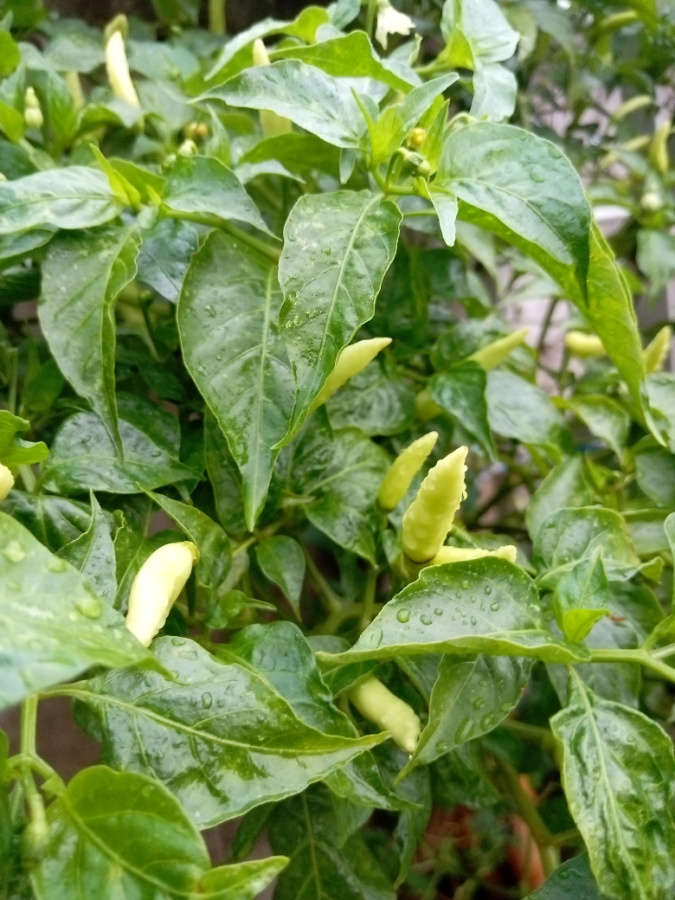Best Fertilizers for Peppers: Make The Most Of Plant Health and Return
Best Fertilizers for Peppers: Make The Most Of Plant Health and Return
Blog Article
Organic Vs. Synthetic Fertilizers: Which Is Best for Nurturing Healthy Pepper Plants?
In the realm of supporting healthy and balanced pepper plants, the choice between artificial and natural plant foods stands as an essential choice with far-reaching ramifications. While both alternatives purpose to give important nutrients to support plant growth, the subtleties of their effect on the soil, plant wellness, and the atmosphere stimulate a discussion that echoes throughout the gardening community. Comprehending the unique benefits and possible risks of each plant food kind is vital for pepper farmers looking for to maximize their yields while maintaining an eco-conscious and lasting method.
Advantages of Organic Plant Foods
Organic fertilizers provide an environmentally-friendly and lasting strategy to nourishing pepper plants, providing necessary nutrients without the usage of synthetic chemicals. These all-natural fertilizers are derived from natural resources such as garden compost, manure, bone dish, and algae, advertising soil health and biodiversity. Unlike synthetic fertilizers, organic options launch nutrients gradually, guaranteeing a well balanced and stable supply for pepper plants to grow.
One significant benefit of organic fertilizers is their ability to enhance soil structure and water retention. By enhancing soil health, natural fertilizers advertise helpful microbial task, which aids in nutrient uptake by pepper plants. Furthermore, organic fertilizers lower the risk of chemical run-off, safeguarding water sources from pollution and safeguarding the atmosphere.
In addition, organic fertilizers add to lasting dirt fertility by promoting the development of advantageous dirt microorganisms. These microorganisms assist break down natural matter, releasing nutrients in a type that is conveniently accessible to pepper plants. best fertilizers for peppers. By fostering a healthy and balanced dirt environment, natural plant foods support lasting pepper cultivation practices that benefit both plants and the environment
Disadvantages of Synthetic Fertilizers
Synthetic fertilizers, in comparison to their organic counterparts, pose various drawbacks when utilized to nourish pepper plants, impacting both plant health and wellness and ecological sustainability. One major disadvantage of synthetic plant foods is their tendency to seep nutrients from the soil promptly. This rapid leaching can result in vitamins and mineral inequalities in the soil, creating plants to deal with toxicities or deficiencies. Additionally, artificial fertilizers can damage valuable soil organisms, such as earthworms and useful germs, interrupting the soil ecological community's balance.
Moreover, the overuse of artificial plant foods can add to water pollution. Excess plant foods not taken in by plants can remove right into water bodies, resulting in eutrophication, where algae blossoms diminish oxygen degrees in the water, hurting marine life. Moreover, synthetic plant foods are usually stemmed from non-renewable resources, such as fossil gas, adding to carbon exhausts and ecological degradation during their production.
Nutrient Absorption Contrast
Efficient nutrient absorption plays a critical duty in the general health and wellness and growth of pepper plants. When comparing artificial and natural fertilizers in terms of nutrient absorption, organic plant foods have the advantage of providing an extra well balanced and slow-release resource of nutrients (best fertilizers for peppers). Organic plant explanation foods include a selection of macro and micronutrients that are not only advantageous for the plants but likewise advertise healthy and balanced dirt microbial task, site here which helps in nutrient uptake. On the other hand, artificial fertilizers typically offer a quick release of nutrients, which can bring about seeping and drainage, leading to reduced nutrient absorption rates by the plants.
Moreover, organic plant foods boost soil structure and water retention capacity, enabling pepper plants to gain access to nutrients more successfully. This improved soil top quality promotes origin advancement, enabling much better nutrient absorption. Artificial fertilizers, although originally improving plant growth because of their high nutrient concentrations, might prevent long-term nutrient absorption by derogatory dirt wellness over time.
Environmental Impact Factors To Consider

On the various other hand, synthetic fertilizers, although frequently more focused and instantly offered to plants, can have destructive effects on the atmosphere otherwise used properly browse around this site (best fertilizers for peppers). Their production calls for high power inputs, bring about greenhouse gas exhausts and adding to environment adjustment. The runoff of excess synthetic fertilizers can pollute water sources, leading to eutrophication and damaging marine communities.
Finest Plant Food Practices for Peppers
When fertilizing pepper plants, enhancing nutrient uptake and minimizing environmental effect are vital considerations. To accomplish this, it is necessary to follow finest fertilizer practices customized to the particular requirements of pepper plants. One critical method is to execute a dirt examination before using any kind of fertilizers. This examination can figure out the pH degree of the dirt and determine any nutrient deficiencies, directing you in picking the most ideal fertilizer formulation.
Another important method is to feed pepper plants at the correct time. Commonly, peppers gain from getting plant food at planting and after that again when they begin to flower. Over-fertilizing can bring about nutrient discrepancies and hurt the plants, so it is vital to follow advised application prices.
Furthermore, choosing a balanced plant food with an NPK proportion that matches pepper plants' needs is essential. Ultimately, incorporating synthetic and organic plant foods deliberately can aid support healthy and balanced pepper plants while reducing ecological effect.
Verdict

Organic fertilizers use an environmentally-friendly and lasting approach to nourishing pepper plants, giving necessary nutrients without the use of artificial chemicals. Unlike synthetic fertilizers, natural options release nutrients slowly, making certain a consistent and balanced supply for pepper plants to grow.
Artificial fertilizers, in comparison to their organic counterparts, position various drawbacks when utilized to nurture pepper plants, influencing both plant health and ecological sustainability. When comparing natural and artificial fertilizers in terms of nutrient absorption, natural fertilizers have the benefit of offering a more well balanced and slow-release resource of nutrients.Furthermore, organic fertilizers enhance dirt structure and water retention ability, permitting pepper plants to accessibility nutrients extra effectively.
Report this page